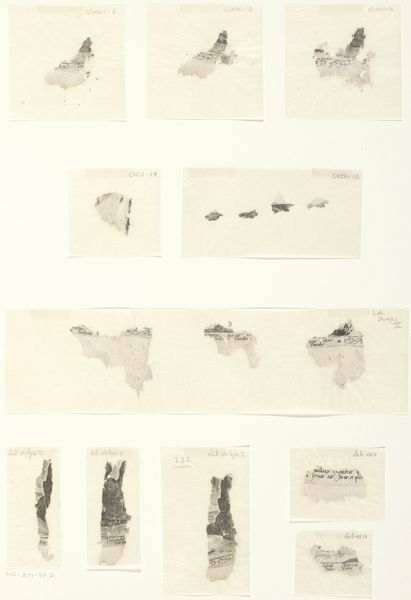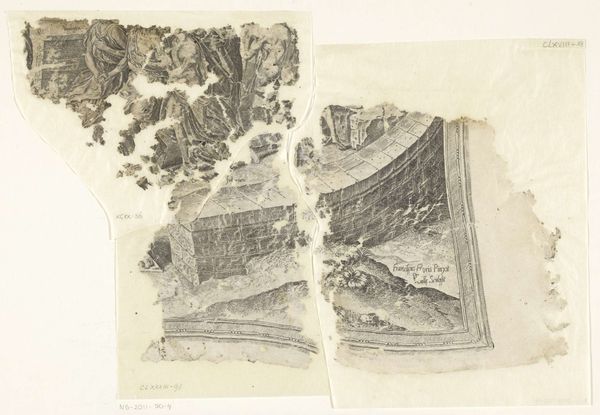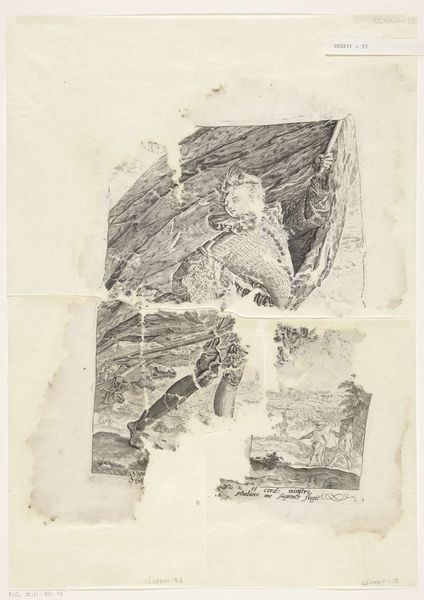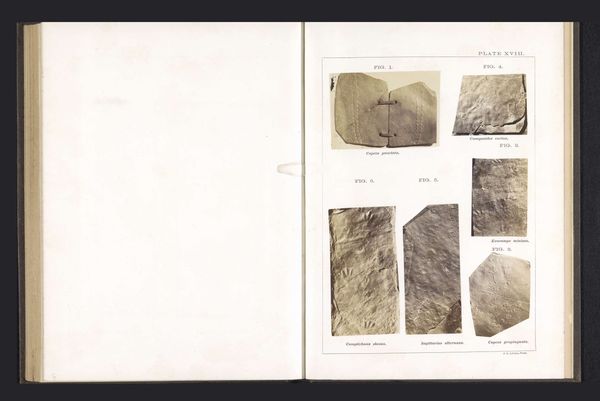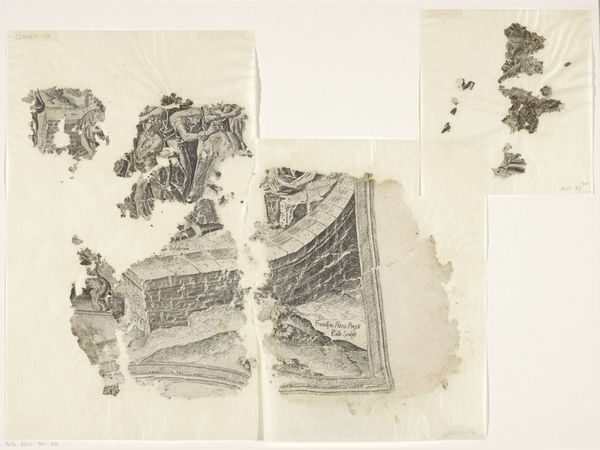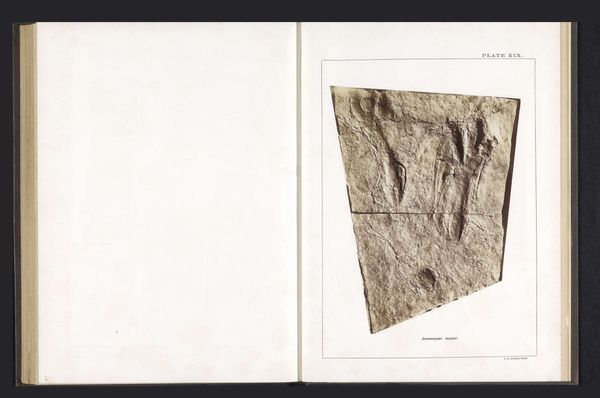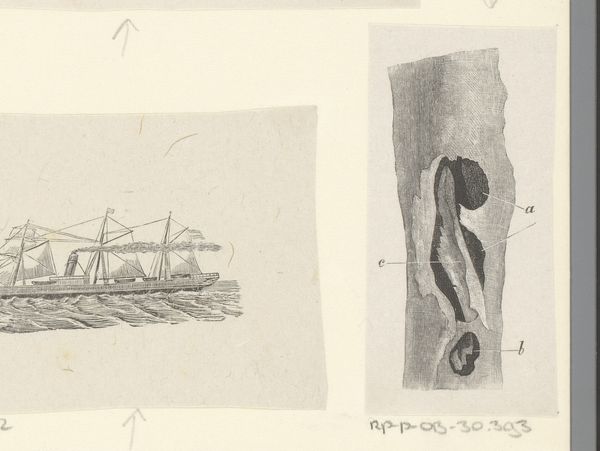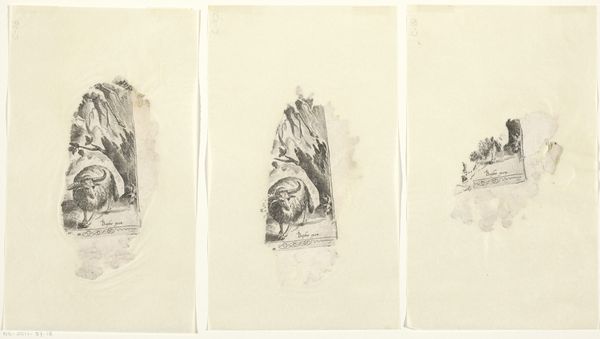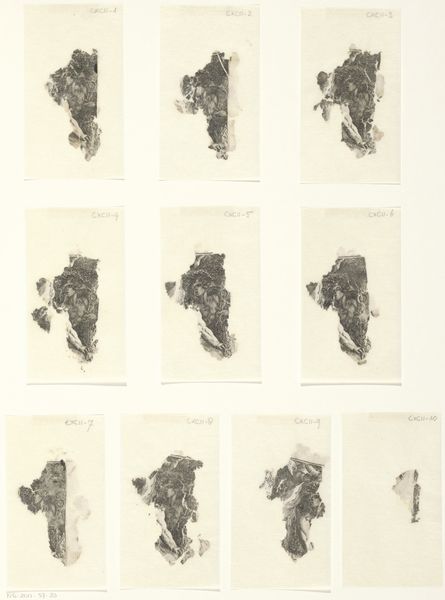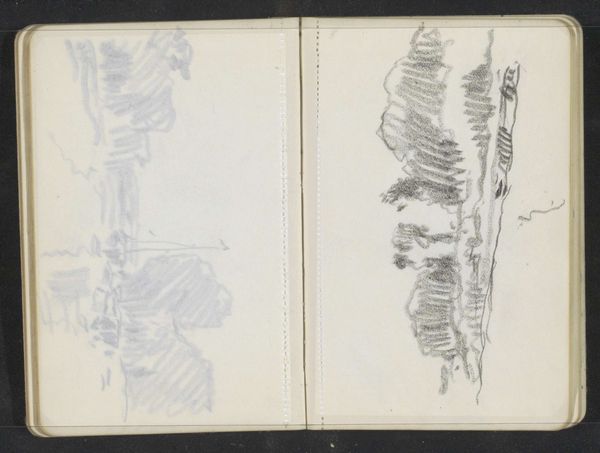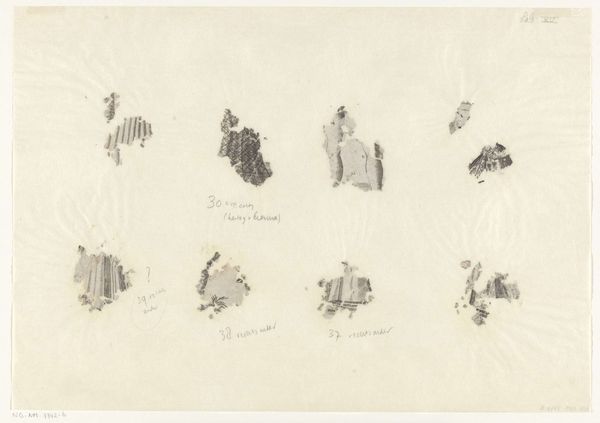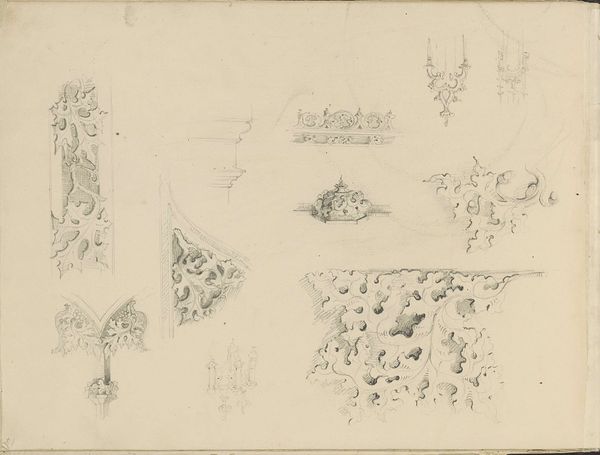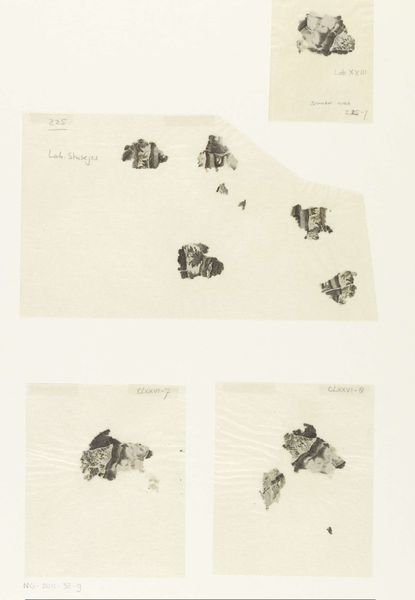
Losse fragmenten van een prent van het oordeel van Paris 1580 - 1596
0:00
0:00
zachariasdolendo
Rijksmuseum
graphic-art, print, etching, engraving
#
graphic-art
# print
#
etching
#
etching
#
mannerism
#
figuration
#
history-painting
#
engraving
Dimensions: height 201 mm, width 204 mm
Copyright: Rijks Museum: Open Domain
Curator: This intriguing arrangement before us is titled "Losse fragmenten van een prent van het oordeel van Paris," or "Loose Fragments of a Print of the Judgement of Paris." It dates from 1580 to 1596 and is attributed to Zacharias Dolendo. Editor: Fragments is certainly the word for it. The effect is quite… unsettling. The pieces, laid out like archaeological evidence, disrupt any easy reading of the original narrative. Curator: Dolendo was a master engraver and etcher working in the Mannerist style. It's currently held here at the Rijksmuseum. Editor: Looking at the largest fragment, there's this pale, almost forlorn figure partially emerging, seemingly weighed down by the earth, draped textiles clinging to the limbs… This moment from mythology suddenly feels incredibly burdened. Was Dolendo, through fragmentation, critiquing the idealised heroism typically ascribed to mythological subjects? Curator: It's important to remember the power of classical narratives in that period. The Judgement of Paris was a potent allegory, a foundational myth regarding beauty, power and fate. Perhaps these fragments point to a disintegration of faith in such narratives, reflecting social and political turmoil through the wreckage of imagery. We have Venus, Cupid… Editor: Right. Seeing those fragmented figures in this state forces a reckoning. It's a kind of unearthing. Where is beauty in wreckage? Where's agency, for that matter, within the partial record of what we believe the past to be? How complicit are we, really, in reconstructing these images? Curator: In iconographic terms, disruption can reveal hidden depths. Mannerism thrived on artifice. Presenting a broken narrative demands we become active participants. By compelling interpretation of incompleteness, the work points to enduring qualities, beyond the individual depiction. Editor: These 'Loose Fragments' become less a lament for lost integrity and more a radical proposition – they ask us to interrogate the very basis on which narratives, power structures, and histories are constructed. It seems to invite questions around privilege, the male gaze and the cost of winning a golden apple. Curator: I leave here now contemplating how what’s absent speaks as loudly as what is present. Editor: And, equally, how the wounds of the past echo even within the silences of incomplete narratives.
Comments
No comments
Be the first to comment and join the conversation on the ultimate creative platform.
